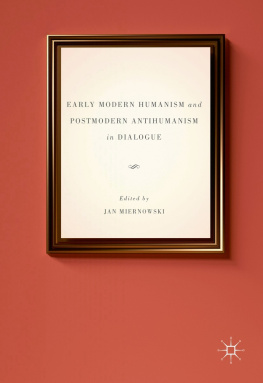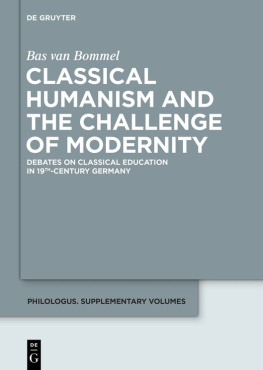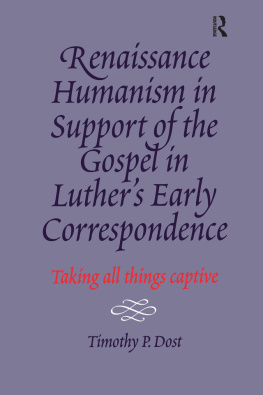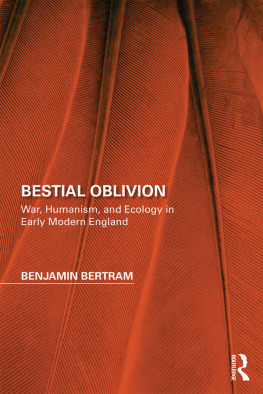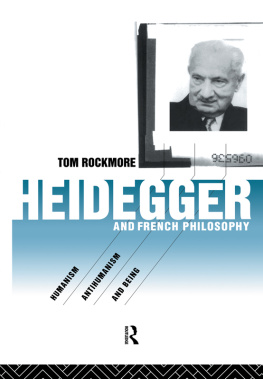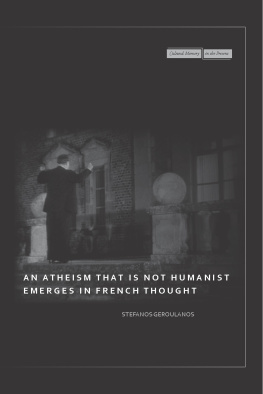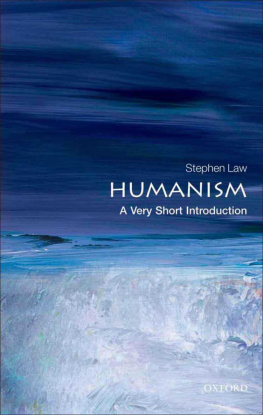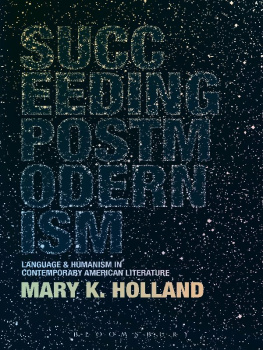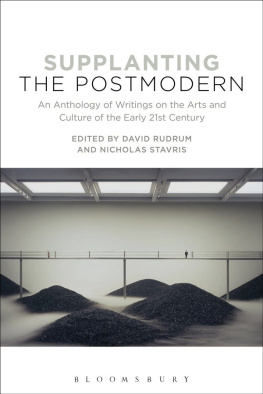Attacks on the intentional fallacy have often neglected developments in philosophy since the Second World War that suggest other locations for meaning besides the inner sanctum of the mind present to itself. Indeed, what many critics of literary intention take for granted is that nave readers will gravitate naturally to a theory of self-expression. Such a theory is internalist and representationalist; it has its origins in Aristotles assertions in the Peri Hermeneias about writing as an image of the sentiments ( pathemata ) of the soul (16a5-9), although the language of self-expression arises in Renaissance humanism. In short, attackers presuppose a private, mental, and representational picture of meaning and not a public, intersubjective, and active one. Alternative, more public ways of conceiving of action and meaning in writing, ways also available to Renaissance humanists (and which often foreground rhetorical and ethical questions), merit more examination. Or so I will argue.
I start from the assumption that the death of the author is primarily a concern for the intellectual historian. This death is a historically situated one: its site is that of Parisian philosophy of the late 1960s and the (slightly older) Anglo-American New Criticism. The discussion of authorial agency rests primarily here on comments about two works: Erasmus Praise of Folly (1509) and Renzo Martens film Episode 3: Enjoy Poverty (2008). There are many possible examples: these two happen to be separated by almost exactly half a millennium. The analysis I provide links concerns about interpretation, omnipresent in the early modern period, with ethical concerns regarding care, deployed by Martens in his film. I argue that in many cases authorship is inextricably imbricated with humanist concerns, and, in particular with the provocation of the readers or spectators ethical reflections.
Death and Transfiguration
Roland Barthes essay La Mort de lauteur will soon be a half-century old, and its influence on a generation of critics cannot be overestimated. The essay can now be put into historical perspective, that is, understood in the contingent context of its production: France in the late 1960s, and in particular the long heritage of Stphane Mallarms announcement of the elocutionary disappearance of the poet. Barthes explicitly privileges the Mallarman heritage, writing that in France, Mallarm, no doubt the first, saw and foresaw the necessity to substitute language itself for the subject hitherto supposed to be its owner. That the story of the writers disappearance is of a strikingly Gallic cast (passing from Mallarm to Valry to Proust to Surrealism) is hardly surprising, since similar universalizing tendencies are pervasive in criticism in other languages, and all the more so in English.
Yet, partly because of the peculiarly local nature of Barthes references, the theoretical assertions that open his essay warrant more scrutiny. Barthes begins by quoting from Balzacs novella Sarrasine , noting the ambiguity of the relationship of the narrative voice to the author:
Who speaks in this way? We can never know, for the good reason that writing is the destruction of every voice, every origin. Writing is that neuter, that composite, that obliquity into which our subject flees, the black-and-white where all identity is lost, beginning with the very identity of the body that writes.
No doubt it has always been so: once a fact is recounted for intransitive purposes, i.e. exclusive of any function except the exercise of the symbol itselfthis gap appears, the voice loses its own origin, the author enters into his own death, writing begins. The author is a modern character, no doubt produced by our society as it emerged from the Middle Ages, influenced by English empiricism, French rationalism, and the personal faith of the individual, or, as we say more nobly, of the human person. Hence it is logical that
The rhetorical strategies of this passage are worth examining in some detail. Barthes (or perhaps, given the positions here advanced, some indeterminate voice behind this essay) asks, who speaks in this way? going on to claim that the answer to that question is necessarily indeterminate for the good reason that writing is Notice the force of the copula of identity. Writing is There is no argument offered for the following theoretical definition: the effacement of all origin. Rather, there ensues a rapid historical narrative, in which we pass directly from the end of the Middle Ages (extending apparently into the seventeenth century) to English empiricism.
The chronology is strangely retrograde. Should a writer such as Francis Bacon be taken here to be an English empiricist, or does this philosophical movement start later in the seventeenth century with Hobbes or even Locke? Do we then move backwards, or forwards, from the English empiricists to the French rationalists? And why is the last element in Barthes list, the personal faith of the individual, also chronologically the earliest (i.e. the Reformation)? Moreover, Barthes assumption of intransitivitythat writing is separated not only from origin but also from any sense of worldly action (exclusive of any function except the exercise of the symbol itself)is a tendentious description, one that generalizes for all time (no doubt [ sans doute ] it has always been thus) a view of literature rooted in post-Romantic assumptions, and resting on a conception, taken as self-evident, of linguistic production based on symbols. Such a view of literature sits awkwardly with the historical evidence of early modern texts and particularly the rhetorical assumptions of early modern humanism. What is more, such a view of the linguistic symbol suggests, I will argue, a parochial view of twentieth-century linguistic philosophy, as is evinced by Barthes rather rapid reading, probably via Benveniste, of Oxford philosophy. In short, Barthes essay ultimately rests largely on ex cathedra argument by prestigious assertion. In particular, the hence it is logical that, which introduces a move in the argument linking authorship to capitalist ideology, is logically inert. What Barthes puts in the place of the theory of authorial agency is a performative model based on a (partial) reading of J.L. Austin. Other models of writing, externalist and intersubjective ones: both rhetorical (in which the addressee is necessarily central) and post-Wittgensteinian (in which language is essentially nonprivate), are absent from his discussion.
By contrast to Barthes, Michel Foucault begins his 1969 article on the author-function, Quest-ce quun auteur? by suggesting that indifference to the identity of the speaker was central to contemporary concernsindeed, by evoking the context of contemporary intellectual production in which the broadly Mallarman and Barthesian post-Romantic concern for the elocutionary disappearance of the author was primarily an ethical concern. Why an ethical concern? Primarily because the institutions of literary knowledge, of university culture, were, it seemed, in the thrall of an authoritarian idea, attached, for example, to the name of Lanson, whereby the author was the ultimate guarantor of understanding (a tradition Barthes explicitly calls tyrannical). The death of the author is a declaration of independence from this tradition.
The context in which the liberatory death of the author (and thus then liberation from individualized voluntas ) became popular is that of the 1960s structuralism, and what structuralism had to say about individual agency as an epiphenomenon of intersubjective structural machinery. Here the voluntas/scriptum distinction of rhetorical hermeneutics is subsumed by a system or structure that takes priority over the individual case even when there are considerable differences in the ways this recourse to structure happens.

